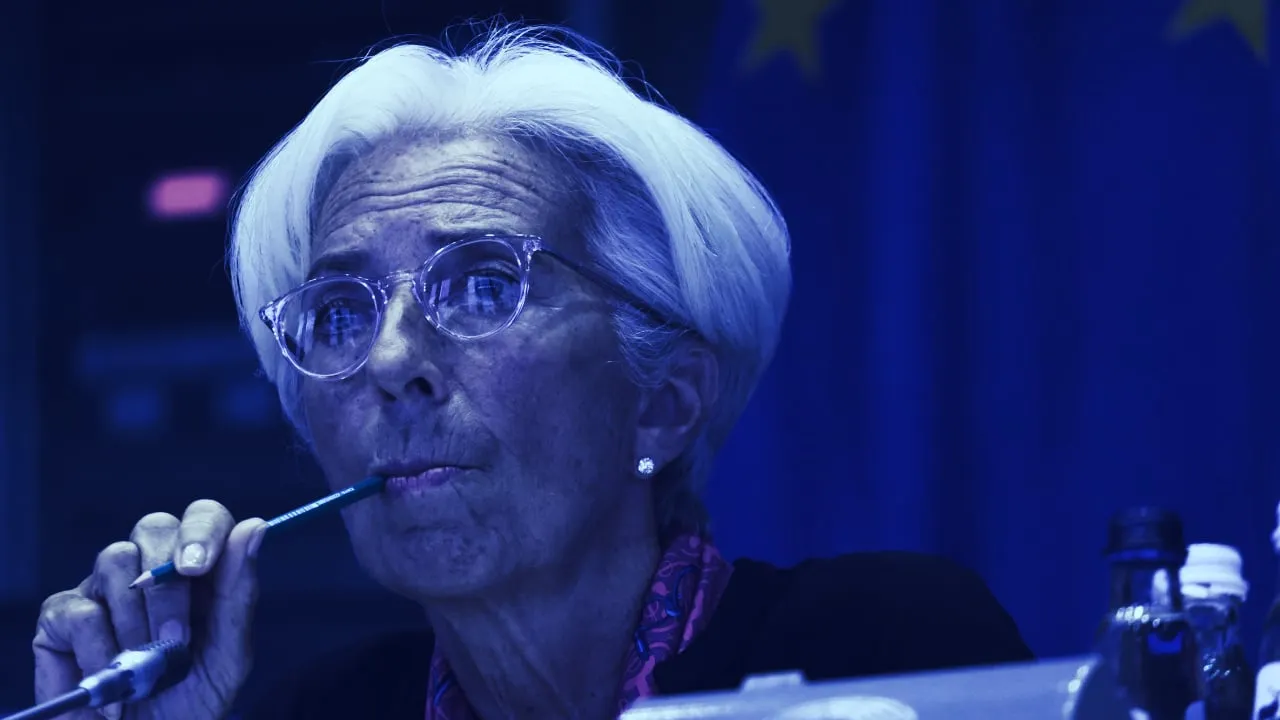We do the research, you get the alpha!
In an interview published today, European Central Bank (ECB) head Christine Lagarde told French business magazine Challenges that the ECB is still looking at issuing a central bank digital currency (CBDC) to counteract a potential decline in the use of cash.
That Lagarde is interested in a CBDC isn't new—she's been calling for governments to look into them for a while. After taking over as ECB chief from cryptocurrency-skeptic Mario Draghi at the beginning of November, she quickly established a task force within the ECB to work with member states' central banks to assess "the feasibility of a euro area CBDC in various forms."
Today, however, she hinted a bit more at her thinking, noting "an urgent demand for quicker and cheaper payments, especially cross-border ones." While Europe currently has a system for using central bank money for instant payment settlement, cash is no longer king.
A 2019 International Monetary Fund report, published when Lagarde was managing director of that organization, found that "average cash use across 11 countries [including non-European ones] is falling by an average of 1.3 percent to 2.2 percent a year," which it attributed to demographic changes: Younger people use cash less often.
The report nevertheless poured some cold water on CBDCs, noting, "For digital cash to be a success, there has to be an incentive to adopt it." According to the report, "substitute instruments tied to private bank deposit money" seemed just as viable. Without an additional incentive, "CBDC [is] only as convenient as a bank debit card—not better."
In today's interview, however, Lagarde implied that creating a CBDC is about more than just younger generations' spending preferences.
Quicker payment processing also benefits firms, "which want to optimize payment and supply chain processes," she said. Moreover, Lagarde only wants to move forward with a CBDC if the European Central Bank can do so without stepping on the toes of private banks and their debit cards: "The prospect of central bank initiatives should neither discourage nor crowd out private market-led solutions for fast and efficient retail payments in the euro area."





